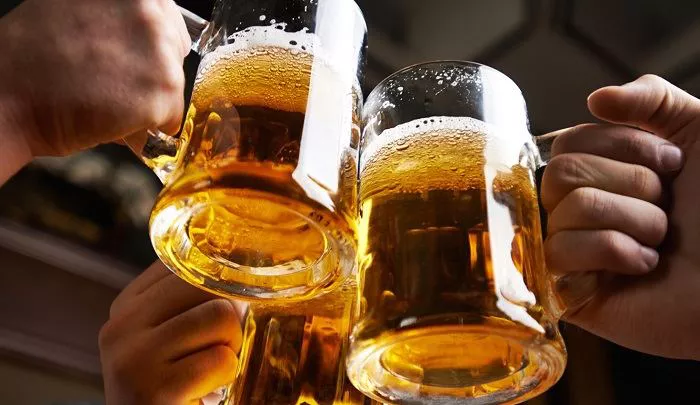In the realm of hydration, opinions often clash, and myths abound. One such contentious topic is whether beer, a beloved beverage for many, can serve as a hydrating elixir. Amidst the cacophony of conflicting claims, it becomes imperative to discern the truth from mere hearsay. This article embarks on an exploratory journey to dissect the question: Is drinking beer good for hydration?
Understanding Hydration: The Basics
Before delving into the debate surrounding beer’s hydrating properties, it’s crucial to grasp the fundamentals of hydration. Water constitutes an essential component of human physiology, facilitating various bodily functions, including temperature regulation, nutrient transportation, and waste elimination. Optimal hydration denotes a state wherein the body maintains an adequate balance of fluids, ensuring peak performance and well-being.
Debunking the Myth: Beer as a Hydrating Beverage
Contrary to popular belief, consuming beer does not align with conventional notions of hydration. While beer comprises a significant portion of water, typically ranging from 85% to 95%, its alcoholic content introduces complexities that impede its efficacy as a hydrating agent. Alcohol, a diuretic substance, exerts a dehydrating effect on the body by increasing urine production and accelerating fluid loss. Consequently, the net hydration gained from beer consumption may be negligible or even negative, particularly in instances of excessive intake.
See Also: Can You Drink Beer After Whiskey: Exploring the Compatibility of Alcohol Combinations
The Role of Alcohol: Impacts on Hydration
Alcohol, the primary psychoactive component in beer, possesses inherent properties that hinder the body’s hydration mechanisms. Upon ingestion, alcohol traverses the gastrointestinal tract and enters the bloodstream, where it exerts its physiological effects. One such effect involves the suppression of antidiuretic hormone (ADH) secretion, a hormone crucial for regulating water retention by the kidneys. Consequently, diminished ADH levels prompt increased urine production, thereby exacerbating fluid loss and compromising hydration status.
Beyond the Buzz: Alcohol’s Dehydrating Effects
The diuretic properties of alcohol manifest prominently in the aftermath of beer consumption, contributing to post-drinking symptoms such as thirst, dry mouth, and dehydration. As alcohol exerts its dehydrating influence, the body’s fluid balance becomes disrupted, necessitating replenishment to restore equilibrium. However, the tendency for individuals to overlook or misinterpret these signals often exacerbates the problem, perpetuating a cycle of inadequate hydration.
Hydration Strategies: Mitigating Beer’s Dehydrating Effects
While beer may not serve as an optimal hydrating beverage, certain strategies can help mitigate its dehydrating effects and promote overall fluid balance. Moderation emerges as a central tenet, as excessive alcohol consumption exacerbates dehydration and poses myriad health risks. By adhering to recommended guidelines—such as limiting intake to moderate levels and alternating alcoholic beverages with water—individuals can attenuate the negative repercussions associated with beer consumption.
The Importance of Water: A Hydration Imperative
Amidst discussions surrounding beer’s hydrating potential, the paramount importance of water cannot be overstated. As the quintessential hydrating beverage, water reigns supreme in facilitating bodily functions and maintaining optimal health. Unlike beer, water lacks the diuretic effects of alcohol, allowing for efficient hydration without the accompanying drawbacks. Thus, integrating ample water intake into one’s daily regimen remains indispensable for sustaining hydration levels and promoting overall well-being.
Navigating Hydration: Practical Considerations
In navigating the intricacies of hydration, individuals must adopt a nuanced approach that considers various factors, including lifestyle, dietary habits, and personal preferences. While beer may offer social and gustatory enjoyment, its role in hydration should be judiciously assessed within the broader context of overall health and wellness. By prioritizing moderation, diversifying beverage choices, and heeding the body’s signals, individuals can strike a balance that optimizes hydration while indulging in occasional libations.
Myth vs. Reality: Dispelling Misconceptions
Dispelling misconceptions surrounding beer’s hydrating prowess necessitates a nuanced understanding informed by scientific evidence and empirical observations. While beer undoubtedly contains water, its alcohol content introduces complexities that undermine its efficacy as a hydrating beverage. Acknowledging this reality empowers individuals to make informed choices regarding their hydration practices, steering clear of unfounded beliefs and embracing evidence-based approaches to wellness.
Conclusion: A Thirst for Truth
In the perpetual quest for hydration, separating fact from fiction assumes paramount importance. While the notion of beer as a hydrating elixir may hold sway in popular imagination, scientific inquiry reveals a more nuanced reality. Alcohol’s diuretic properties undermine beer’s hydrating potential, necessitating a cautious approach to consumption. By prioritizing moderation, complementing beer intake with water, and heeding the body’s cues, individuals can navigate the labyrinth of hydration with wisdom and discernment. In the end, the pursuit of truth reigns supreme, guiding us towards informed choices that uphold our well-being and vitality.


